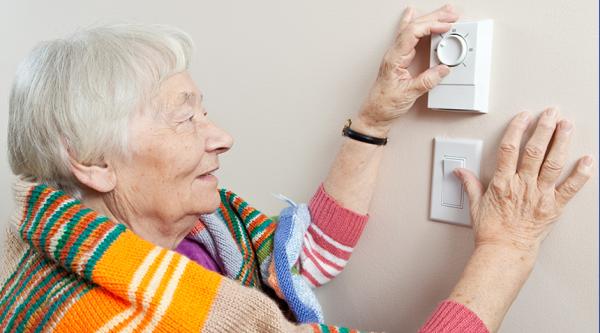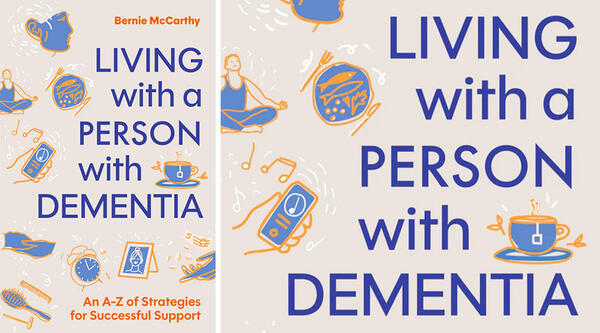Preventing and managing aggressive behaviour in people with dementia
Find ways to prevent and manage aggressive behaviour in the future, to help both you and the person with dementia.
- Aggressive behaviour and dementia
- You are here: Preventing and managing aggressive behaviour in people with dementia
Aggression and dementia
Working out what might be triggering aggressive behaviour may make it easier to prevent it. Always try to see things from the person’s perspective. Think about the situations where they’ve become aggressive, and to try to find what has triggered this response.
Think about what you know about the person and their life. Be aware of their beliefs and thoughts and try not to argue with them. For example, if the person has always valued their privacy and independence, then being helped with eating or washing might cause them to become angry.
See our information on Reducing and managing behaviour that challenges.
Tips for managing aggressive behaviour
Managing the person's wellbeing
- If the person enjoys music, help them to listen or take part in making music. This could be supporting them to listen to a favourite piece or types of music using a radio, virtual assistant or other device. They might enjoy being involved in music in groups (singing, playing instruments) or music therapy (with a trained professional). If there is a certain time of day when the person tends to seem agitated or become aggressive, it may help to put on some music that you know they enjoy at that time. If a particular activity, such as bathing, can lead to them behaving aggressively, put on some music before you begin.
- Try to ensure that the person is getting enough sleep. Tiredness can lead to feeling overwhelmed and frustrated, making aggressive behaviour more likely.
- Create a calm environment. This could include soft blankets or cushions and pictures that the person finds comforting. Ensure the person is comfortable. Soft music or nature sounds, and fragrances such as lavender, can also help.
- Support the person to keep physically active and exercise. This can help them to reduce agitation and aggression, as well as improve their sleep. It can help to use up spare energy and act as a distraction. It also provides opportunities for social interaction with others and can provide you with a break.
Other methods that may help include:
- stimulating the senses – for example, with hand massage, aromatherapy or familiar, repetitive actions such as folding clothes or sorting buttons
- animal-assisted therapy
- doll or toy therapy
- arts therapy – including dance, drama, singing, drawing or painting
- light therapy or bright light therapy – this involves a person sitting in front of a light box for a set amount of time each day
- cognitive stimulation – this involves activities and exercises that are designed to improve memory and communication skills. Activities are based on day-to-day interests, reminiscence and information relating to the current time and place
- looking for signs of pain or discomfort from the person. These are often linked to aggressive behaviour in people with dementia. However, they are often not recognised, even in formal care settings like care homes. Signs may include:
— rubbing or pulling at a particular body part
— facial expressions (wincing, looking scared or clenching their teeth)
— body language (huddled, rocking, or sitting awkwardly)
— a change in appetite
— being more restless or never seeming comfortable
— new swellings or inflammations
— a high temperature.
It’s always a good idea to visit the person’s GP.
How to respond to aggressive behaviour in dementia
It can be difficult to know how to react when a person is behaving aggressively. Try to take a moment to think about their needs and why they might be behaving in this way. They are not likely to be doing it on purpose.
As a person’s dementia progresses, they will have more difficulty understanding logic and persuasion, so trying to reason or argue with them is not likely to help. It may cause frustration and distress for you both.
The tips below may help you. They are things you can do, and avoid doing, while the person is behaving aggressively and afterwards.
It is very important to seek support if the person you are caring for is acting aggressively, and to keep yourself safe. This may mean calling the police if you feel you are at immediate risk.
At the time
- Before you react, take a deep breath, step back to give the person space and take some time. If appropriate, it may help to leave the room until you’re both feeling calmer.
- Although it can be difficult, try to stay calm. Like anyone, the person is likely to respond to your own behaviour and the way you communicate with them. An angry or irritated response may make the situation worse.
- Make sure you are safe. This may mean speaking to the GP, social services or other family members, or calling the police if you are at immediate risk.
- Give the person plenty of space and time. Unless it’s absolutely necessary, avoid moving too close or trying to restrain someone, as this can make things worse.
- Try not to shout or initiate physical contact – the person may see this as threatening behaviour.
- Reassure the person and acknowledge their feelings. Think about how they are feeling, what they are trying to express, and how you can support them emotionally. For example, if the person is angry because they are being stopped from picking up their children from school, acknowledge that they want to look after their children and reassure them that they are safe. For more information on managing situations like this see How can dementia change a person's perception?
- Listen to what they are saying. Try to keep your body language open (for example by not crossing your arms) and stay calm. It can also help if your body language is similar to the person’s. For example, if they are sitting down with their arms on their lap, you may want to mirror this. This shows that you are not against them and that you want to help.
- Keep eye contact and try to explain calmly why you are there. Gently encourage the person to communicate with you.
- If you are trying to support the person with an activity or task, think about whether it needs to be done at that moment. If you are able to, give them space, come back later and try again.
- Try to distract the person’s attention if they continue to be angry.
- If the person is physically violent, walk away from the situation and seek help.
When the behaviour has passed
Try not to blame or punish the person for the behaviour. They may have forgotten what happened, and may become confused or distressed if you treat them as though they’ve done something wrong.
Focus on the person, not the behaviour. They may still feel upset and distressed after the behaviour has passed, even if they have forgotten what happened or what they were responding to. Try to be as reassuring as possible. For more information see our pages about communicating with a person with dementia.
Take some time to talk through your feelings with others. For example, talk to your GP, friends or family, a counsellor or a dementia support worker. It’s important to look after yourself.
Looking after yourself
Read about ways to maintain your own wellbeing when supporting a person with dementia with behaviour that challenges.
- Page last reviewed:








